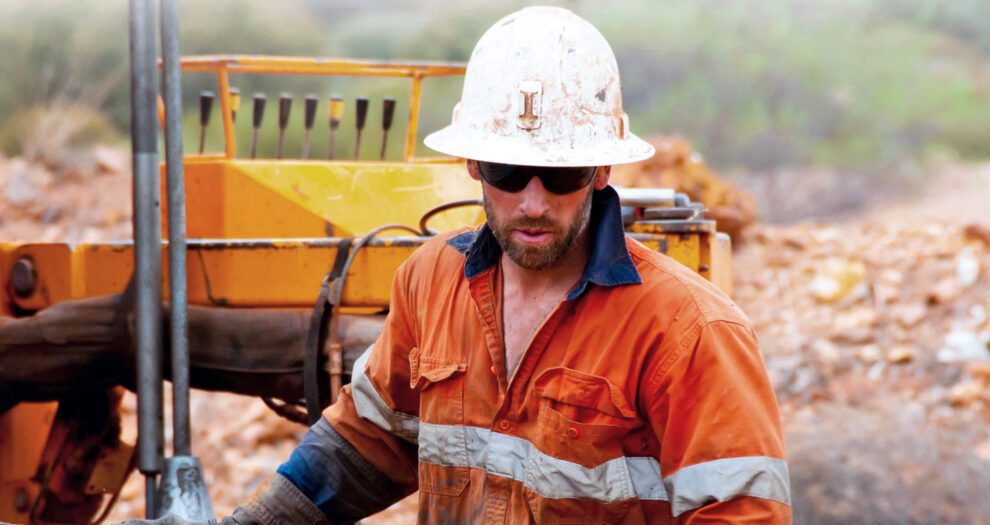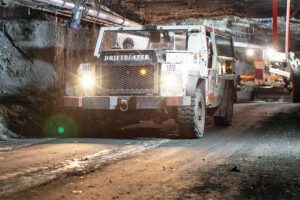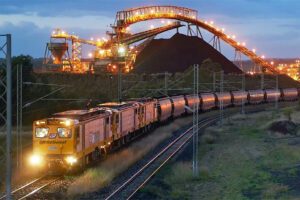Outsourcing workers contributed to a dangerous underground explosion in Central Queensland’s Isaac region, an industrial relations expert found.
Severe workplace injuries could have been avoided, if Anglo American directly employed its workforce at the Grosvenor Coal Mine near Moranbah – 198km southwest of Mackay. The mine site has been closed since a blast hospitalised five workers with severe burns, kidney failure and lung blood-clots back on 6 May 2020.
The Construction, Forestry, Maritime, Mining and Energy Union (CFMEU) claimed One Key labour-hire recruits had “fewer rights”, and could have been sacked more easily, for raising workplace safety concerns at the mine. The union wants Anglo to encourage them to report hazards through guaranteeing long-term job security.
“The labour hire arrangements at Grosvenor are at the root of the safety issues, Anglo needs to employ their workers directly in permanent jobs,” Queensland district president Stephen Smyth said in a public statement.
During an 18-month investigation Resources Safety and Health Queensland (RHSQ) previously heard some Grosvenor employees hesitated to report unsafe work practices out of fear they might lose some income, suffer so-called “safety penalties”, or be terminated. The operation recently received the nod to resume operating.
“We welcome RSHQ decision to allow the mine to reopen but significant trust issues remain, and we call on Anglo American and One Key to support the workforce and be transparent about all issues,” Smyth said.
“Anglo American and One Key were warned many times about safety issues at the mine [and] they need to start listening. It is so important to the workers, their families and coal workers all over Queensland [that] we do not see a repeat of the catastrophic explosion.”
CFMEU has already established a union lodge, which fosters a safe environment for workers to raise concerns about safety, rosters, wages and more.
“Union safety inspectors will be keeping a close eye on operations, and we call on the regulator to keep a close eye as well,” Smyth said.
New research from Edith Cowan University (ECU) linked stress and a lack of confidence to casualisation, labour hire work and the gig economy.
“This work can exacerbate existing psychosocial hazards and introduce new ones,” ECU Centre for Work and Wellbeing director Tim Bentley said in a public statement.
“Casual workers suffer from job insecurity as they can lose their job with only a few hours’ notice. This can be stressful for employees and can also mean they have a high workload and work pace. Casual workers can [also] legally be given unpredictable hours, so their work schedule can by definition be a psychosocial hazard.”
Bentley warned these conditions can lead to slow career development, poor organisational culture and either mental or physical health challenges.
“Employers should take special care to mitigate the hazards of non-standard employment by giving as much notice of shifts as possible, giving workers predictability with their shifts, and increasing the rate of pay for these workers to offset the effect of some of these hazards,” he said.
However, Deloitte Access Economics recently predicted the resources industry could lose thousands of jobs a year, if every contractor and labour hire worker enjoys the same wages and entitlements as direct employees.
“Employment in coal mining would decline by approximately 2300 full-time-equivalent jobs a year to 2031,” Minerals Council of Australia chief executive Tania Constable said in a public statement.
“Employment in minerals and other mining would fall by 4900 jobs a year, [and] employment in mining-related construction would contract by 4000 jobs a year.”
The data confirmed the sector already pays the “highest average wages” of about $143,000 a year, and the “vast majority” of mine employees work on a full-time (96 per cent) and permanent (88 per cent) basis.
“Requiring labour hire workers and service contractors to receive the same above-award wages and entitlements as direct employees would reduce labour efficiency, discourage investment and – ultimately – cost jobs,” Constable said.
Related articles
Central Qld coal mine will reopen after dangerous explosion
Mining giant flags vaccine mandate across all mine sites
Mining giant criticised for ‘inadequate’ isolation care packages
Mining giant will fire labour hire workers who refuse to relocate.














Add Comment